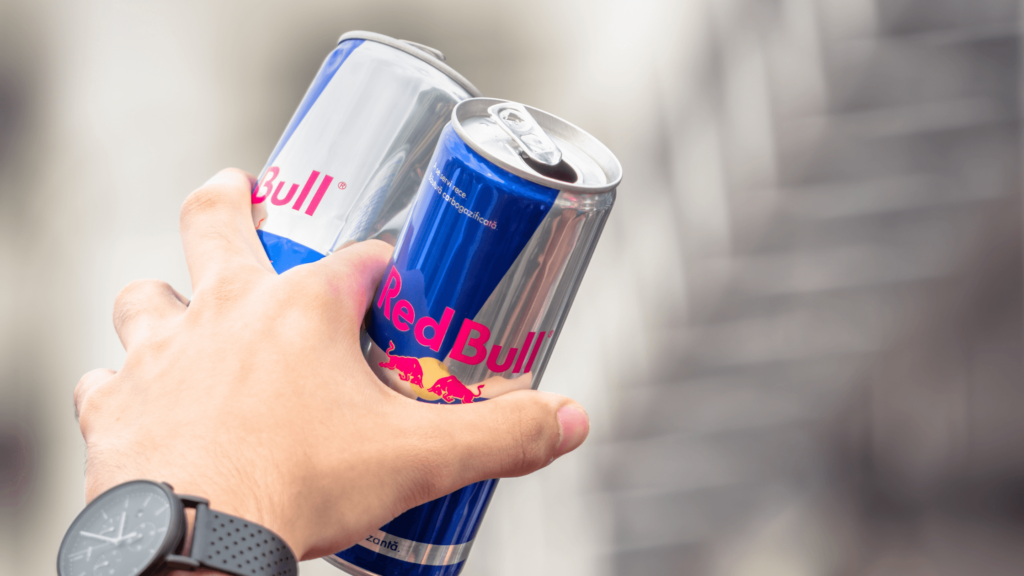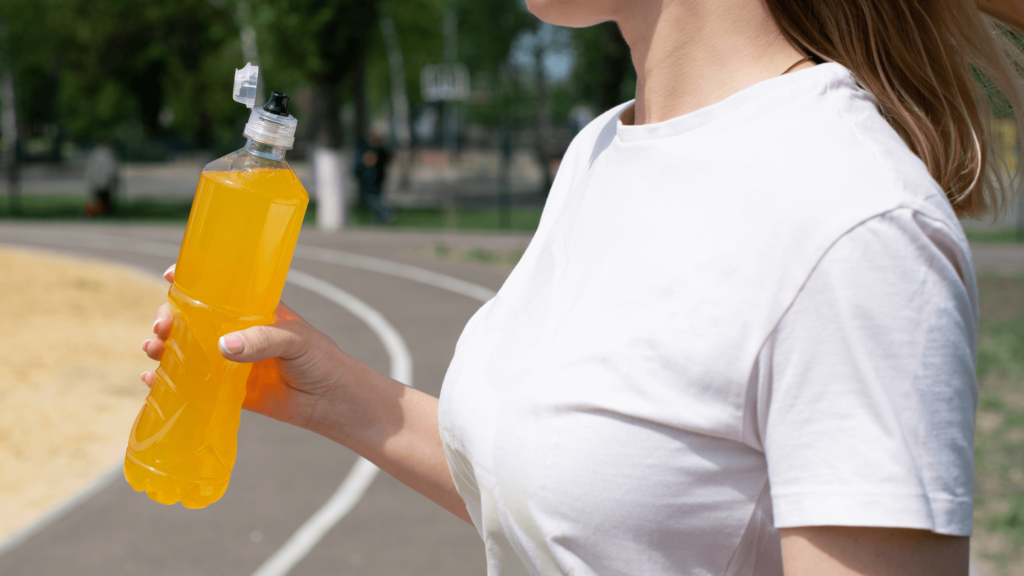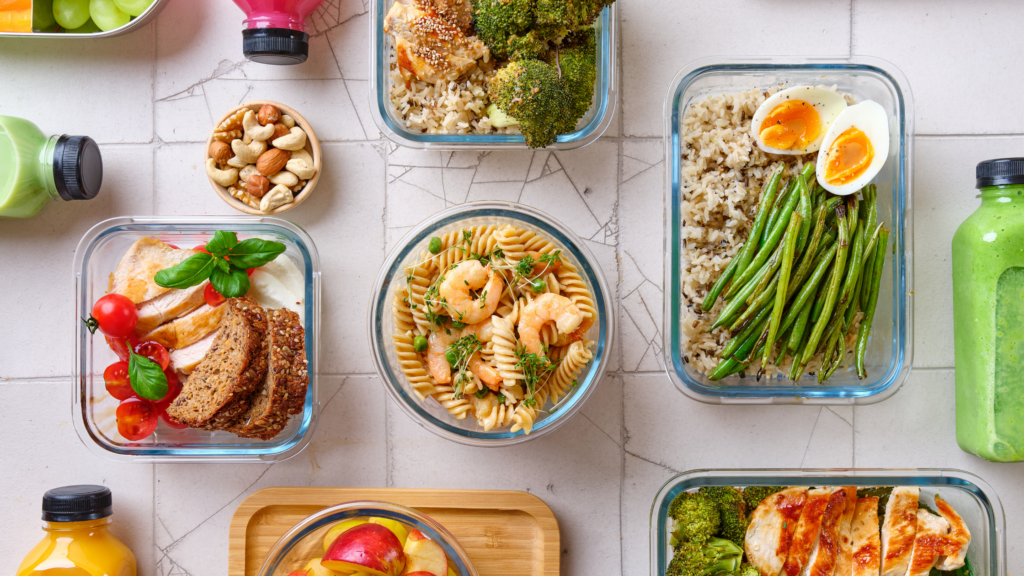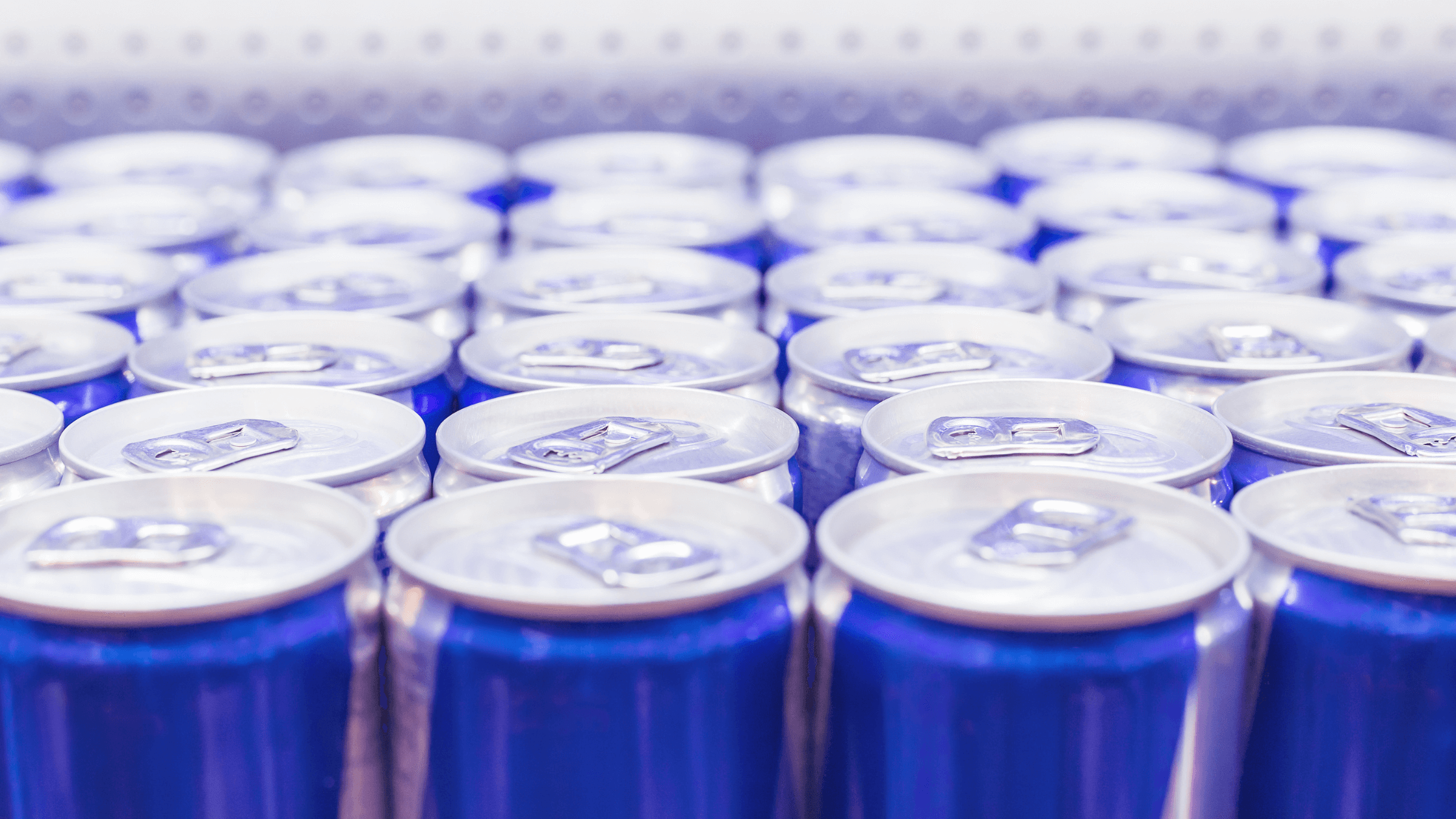Energy drinks are a quick, portable, and relatively inexpensive way to recharge when you feel drained or unfocused. The intense conditions of construction sites mean it’s not unusual to pound back a Red Bull (or two) for breakfast and keep a 5-Hour Energy shot in the pocket of your Carhartts, just in case. But it doesn’t take much for the convenience of energy drinks to become a crutch, and the high levels of caffeine, sweeteners, and stimulants in most energy drinks can cause potentially fatal side effects.
Quick look
- The FDA doesn’t regulate most energy drinks.
- Common energy drink ingredients include caffeine, taurine, B vitamins, guarana, synthetic colors, artificial sweeteners, and sugar, all of which can cause side effects ranging from agitation to heart disease and liver failure.
- For healthier energy sources, try hydrating with electrolytes, eating a balanced diet, and drinking coffee instead.
What are energy drinks?
Energy drinks are popular beverages that contain stimulants like caffeine, guarana, taurine, and B vitamins. They’re often advertised as a panacea for low energy, capable of reducing fatigue, increasing alertness, and boosting performance. Popular brands include Red Bull, Monster, Celsius, Rockstar, and Reign.
Why (most) energy drinks are a problem

Although they’re sold in almost every gas station and grocery store, energy drinks pose a greater health risk than the average soda or cup of coffee. The complex combination of stimulants in the ingredient list can overload your system and cause unintended side effects.
Most energy drinks are considered “dietary supplements” and don’t require FDA approval. This means that although other beverages like sodas have limits on their caffeine content, energy drinks don’t. Energy drink manufacturers also don’t have to subject any health claims to FDA approval.
While serious complications are rare, the complex cocktail of stimulants, artificial ingredients, and vitamins in energy drinks can cause serious issues, including 34 recorded cases of death caused by energy drinks in the last ten years.
Caffeine
Caffeine is probably the most common ingredient in energy drinks and the one we’re most familiar with—caffeine is also found in coffee, tea, chocolate, and many sodas. But while an eight-ounce cup of coffee has 80-100 mg of caffeine, a can of Celsius has 200 mg, and Rockstar Xdurance contains a whopping 300 mg.
Caffeine is considered safe for most adults in doses up to 400 mg per day, but experts recommend limiting the amount to no more than 200 mg per serving. Too much caffeine can cause anxiety, heart palpitations, headaches, sleep issues, and high blood pressure.
Caffeine can also be habit-forming and addictive, meaning that instead of giving you a little extra pep in your step, you might start relying on the high caffeine content of energy drinks just to get through the day.
Taurine
Taurine is an amino sulfonic acid already present in the human body and in protein sources like meat, fish, and eggs. While some animal studies show that taurine supplementation positively impacts muscle, brain, and immune system function, its short- and long-term effects on humans aren’t yet clear. (Also, you’d have to drink half a dozen Red Bulls daily to get the amount used in the animal study—something no medical professional would advise.)
B Vitamins
Energy drinks commonly contain a cocktail of B vitamins, which are essential to a healthy diet—but they can be toxic in high doses. Too much B6 can cause nerve damage and skin lesions, and high doses of B3 can lead to vomiting and liver damage.
A two-ounce shot of 5-Hour Energy contains a staggering 2,000% of the recommended daily allowance (RDA) for vitamin B6, while a can of Red Bull provides 360% of the RDA for vitamin B6 and 140% of your recommended B3 intake.
Guarana
Guarana comes from the Paullinia cupana plant found in the Amazon basin. Energy drink manufacturers often add guarana because of its caffeine content—guarana contains twice as much caffeine as coffee beans (2-8% versus 1-3%). However, high levels of guarana can be risky, causing confusion, hypertension, tremors, and agitation.
Synthetic colors
Many energy drinks contain synthetic colors to make them appear brighter and more appealing. However, many synthetic colors have been linked to cancer and behavioral problems in children, and most have inadequate testing to establish their safety for human consumption.
Artificial sweeteners
Blending caffeine, taurine, guarana, Red 40 food dye, and aspartame doesn’t sound very appetizing, does it? Say hello to artificial sweeteners—the easiest way for manufacturers to help energy drinks taste sweet while keeping the total calorie count low.
Although initially viewed as safe for human consumption, the World Health Organization recently advised against ingesting artificial sugar substitutes like stevia, aspartame, and sucralose, saying “there may be potential undesirable effects from long-term use of NSS, such as an increased risk of type 2 diabetes, cardiovascular diseases, and mortality in adults.”
Sugar
You probably can’t imagine sitting down and eating 21 teaspoons of sugar, but that’s how much is in one 500 ml can of Rockstar Punched Energy + topical guava flavor (83.5 g). One 500 ml of Monster Energy has 14 tsp (57 g), while a 473 ml of Red Bull has 13 tsp (51 g).
Sugar is a cheap source of quick energy—it causes an almost immediate spike in blood sugar, but its long-term effects are anything but sweet. A high-sugar diet can cause fatty liver disease, high blood pressure, chronic inflammation, and an increased risk of dying from cardiovascular diseases.
Instead of grabbing another energy drink…
If you’re staring down an early morning, a mind-numbing meeting, or a project that’s moving almost as slowly as you are, it can feel tempting to reach for a quick fix. There are other more sustainable options, however, that can make you more alert and productive without causing such a hit to your health.
Electrolytes

You’d be surprised how much hydration affects your energy levels, especially when doing physical labor or working in hot environments. Losing just 1.4% of your body fluid can increase fatigue, lower your mood, and disrupt your ability to concentrate.
When you sweat, you lose more than just water—you also lose vital electrolytes like sodium, magnesium, and potassium. An electrolyte drink will help you rehydrate more efficiently than water alone and restore your energy and focus. Coconut water is also a great natural source of electrolytes, keeping you hydrated without the artificial extras.
Nutrient-dense meal

Millions of years before the invention of RockStar, Prime, or even coffee, human bodies were powered by the original energy source: food. If you’re feeling exhausted, energy drinks might be the problem, not the solution.
Caffeine and other stimulants can give you a quick power-up, but they’re a poor replacement for the sustained energy you’ll get from a nutrient-dense diet with a good balance of protein, healthy carbohydrates, and vegetables. Start your day with some of these great breakfast ideas, or get ideas for healthy lunches you can bring to work.
Coffee

To enjoy the benefits of low-dose caffeine without all the additives, go back to basics with a simple cup of coffee. This isn’t the time to order that triple-pump caramel macchiato, though. Stick to black coffee or add a small amount of milk or honey to reap the greatest benefits.
Bottom line
While you might enjoy the short-term benefits of energy drinks, that quick punch of pep may come at a cost to your long-term health and longevity. Exploring healthy alternatives to energy drinks can help keep your energy levels up, but addressing the underlying reasons you keep reaching for those brightly-colored cans will do much more to sustain your focus, productivity, and stamina.
Instead of relying on artificial stimulants, try eating a balanced diet, sleeping well, and spending adequate time outdoors—you may not even miss them, and your body will thank you.



1 comment